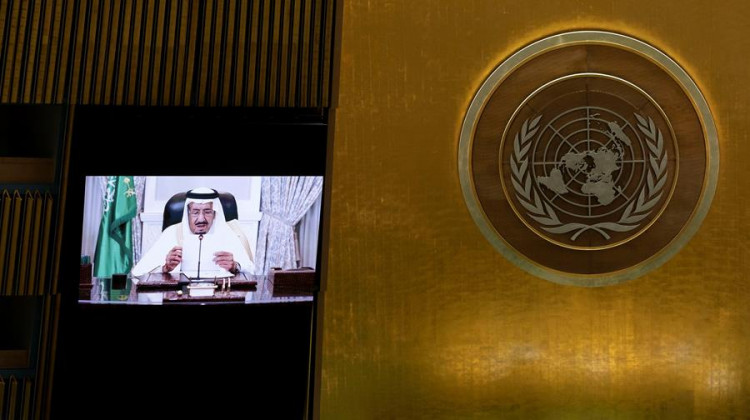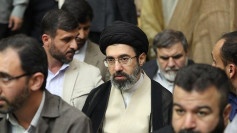Saudi Arabia's monarch Salman bin Abdulaziz told the United Nations General Assembly that his kingdom supports all efforts to prevent Iran from developing nuclear weapons, as world leaders prepare to resume discussions with the Islamic republic to reopen a 2015 nuclear accord.
The Saudi king expressed hope that the kingdom's direct talks with Iran will establish trust and confidence as the two rival nations take small steps toward communication following years of increasing frictions.
Top officials from the European Union, Saudi Arabia and Iran met for the second time in less than a month Tuesday in a sign of mounting efforts to ease tensions in the Middle East, but U.S. officials are expecting what looks to be a tougher negotiating position from the country's new hardline leader.
Nuclear talks between Western nations and Tehran in Vienna have been suspended since June, when Tehran held a presidential election, and the country's new administration has yet to commit to a date to revive the stalled negotiations.
Saudi Arabia and Iran have been at odds for several years, supporting militant groups fighting proxy wars in Syria, Yemen, and other parts of the world. The two regional rivals severed diplomatic relations in 2016, but have been holding talks recently aimed at minimizing tensions.
Ties between the Shiite-governed Iran and Sunni-led Saudi Arabia hit a low when the Trump administration exerted heightened pressure on Iran.
During that time, Iran was accused of masterminding multiple attacks on energy companies in the Persian Gulf and backing Houthi fighters in Yemen, where Saudi Arabia has been at war for more than six years.
European member states have been calling on Iran to restart the negotiations, which were stalled after the June election of Iran's hardline President Ebrahim Raisi.
Both Iran's hardline President Ebrahim Raisi and his U.S. counterpart, Joe Biden, want to reopen the six-year-old nuclear pact but need to iron out key differences over how the two countries return to full compliance with its terms.
Meanwhile, it remains unclear what the Iranian president's new negotiating team will demand if the discussions resume and whether it considers the nuclear agreement as in its nation's best interest, analysts said.






